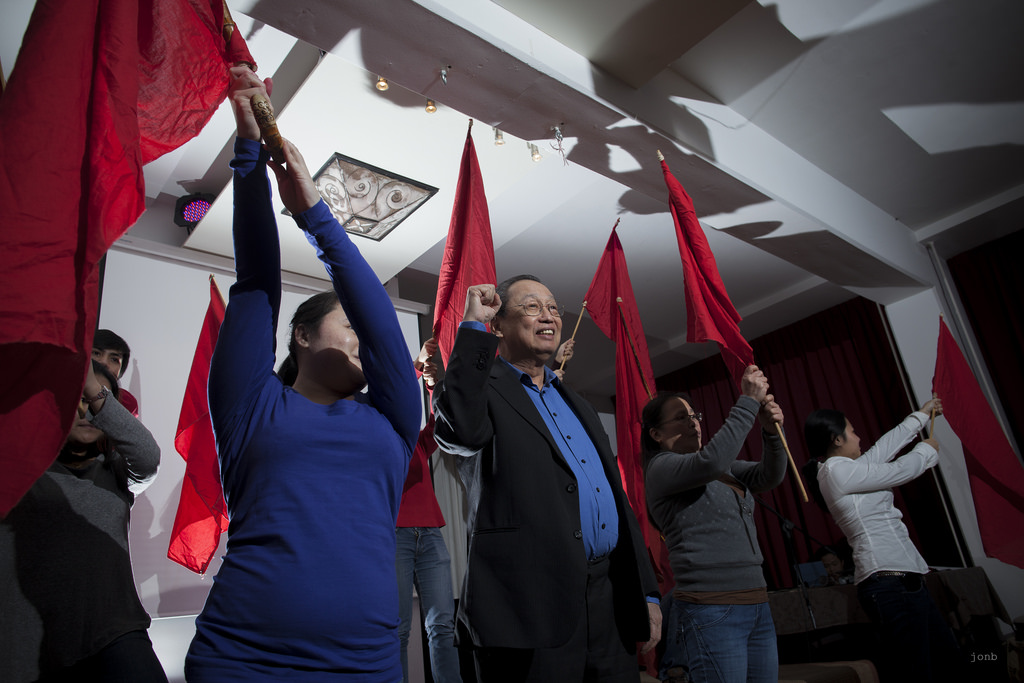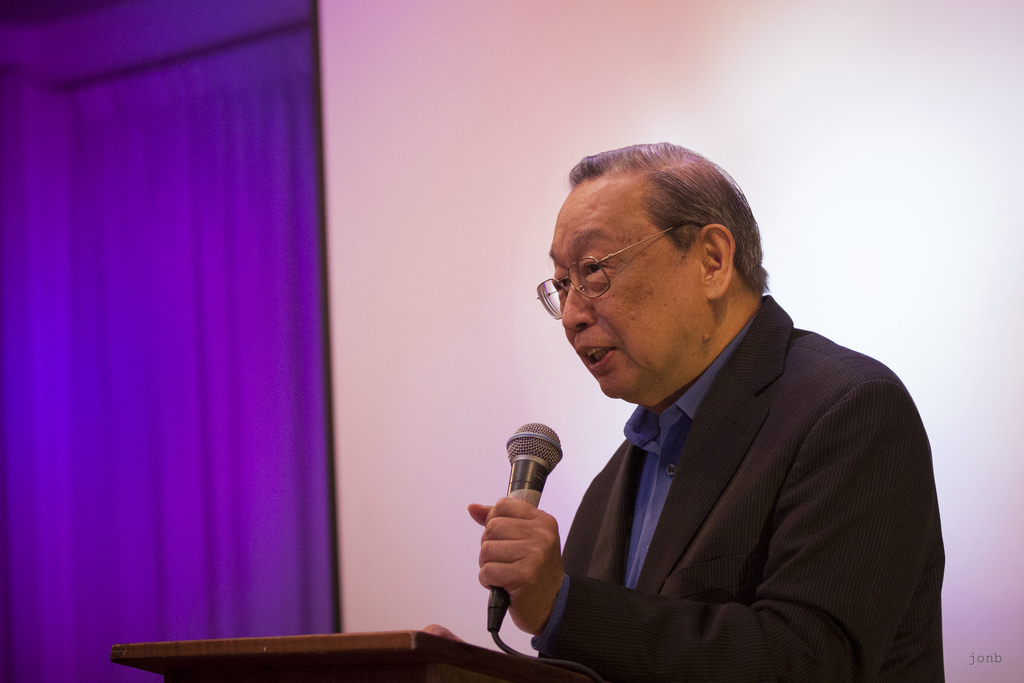
By Prof. Jose Maria Sison
Author
At the Mirror Centre, Amsterdam, 9 February 2014
Dear comrades, friends and compatriot,
First of all, I thank the organizers and all of you for coming. I am overwhelmed and humbled by this celebration. I came to this event, thinking that I would sit back and enjoy myself most of the time. But Julie has made a proposal to further activate me in connection with the revitalization and expansion of the work of the Center for Social Studies. I am thus reminded that there is no sitting back and no retirement for revolutionaries.
I am happy that Building Strength through Struggle, the third book in the series of five books titled Continuing the Philippine Revolution, is now being launched in The Netherlands in conjunction with the celebration of my 55 years of service to the revolutionary cause of the Filipino peopĺe as well as my 75 years of existence outside of the womb.
This book extends, reinforces and further develops the principles, policies and major lines of action for carrying out the people’s democratic revolution, as put forward by the earlier two books in the series, Foundation for Resuming the Philippine Revolution and Defeating Revisionism, Reformism and Opportunism. It includes the major documents of the Central Committee of the Communist Party of the Philippines (CPP) which I drafted and the major articles that I wrote under the nom de guerre Amado Guerrero, from the formal declaration of martial law on September 21, 1972 to my capture on November 10, 1977.
The book is indispensable to understanding why and how under the leadership of the CPP the Filipino people and their revolutionary forces successfully fought and defeated the US-instigated fascist dictatorship of Marcos. The dictatorship was designed to destroy the revolutionary movement but instead served to incite the people to rise up further against the semicolonial and semifeudal ruling system. Let me cite the major contents of the books to show how the CPP guided the revolution.
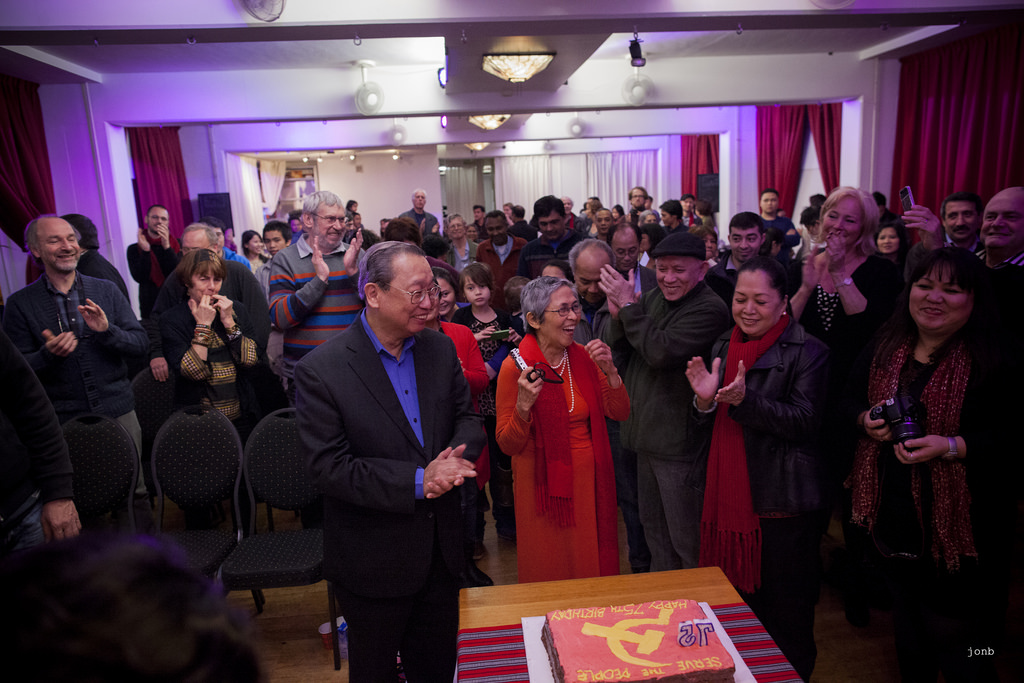 When Marcos imposed fascist dictatorship on the people and outlawed all types of legal opposition, the CPP was already ideologically, politically and organizationally prepared to lead the people in the revolutionary struggle for national liberation and democracy. Soon after the declaration of martial law, the Party issued the comprehensive statement, “Overthrow the US-Marcos Dictatorship to Achieve National Freedom and Democracy.” It condemned the dictatorship as an ultra-reactionary instrument of US imperialism and the local exploiting classes and called for its overthrow through the people’s war. It described the fundamental and fatal weaknesses of the fascist state and the conditions for its eventual downfall notwithstanding its appearance of overwhelming power and invincibility.
When Marcos imposed fascist dictatorship on the people and outlawed all types of legal opposition, the CPP was already ideologically, politically and organizationally prepared to lead the people in the revolutionary struggle for national liberation and democracy. Soon after the declaration of martial law, the Party issued the comprehensive statement, “Overthrow the US-Marcos Dictatorship to Achieve National Freedom and Democracy.” It condemned the dictatorship as an ultra-reactionary instrument of US imperialism and the local exploiting classes and called for its overthrow through the people’s war. It described the fundamental and fatal weaknesses of the fascist state and the conditions for its eventual downfall notwithstanding its appearance of overwhelming power and invincibility.
Basing itself on the nationwide spread of the Party, the New People’s Army, the underground mass organizations and the local organs of political power, the Party issued the “Guide for Establishing the People’s Democratic Government” to lay down the principles, policies and methods for building the revolutionary government in the countryside in order to replace the counterrevolutionary state of the big compradors and landlords based in the urban areas. It was in the period of 1972 to 1977 that the revolutionary forces struck deep roots among the people, especially among the toiling masses, on a national scale.
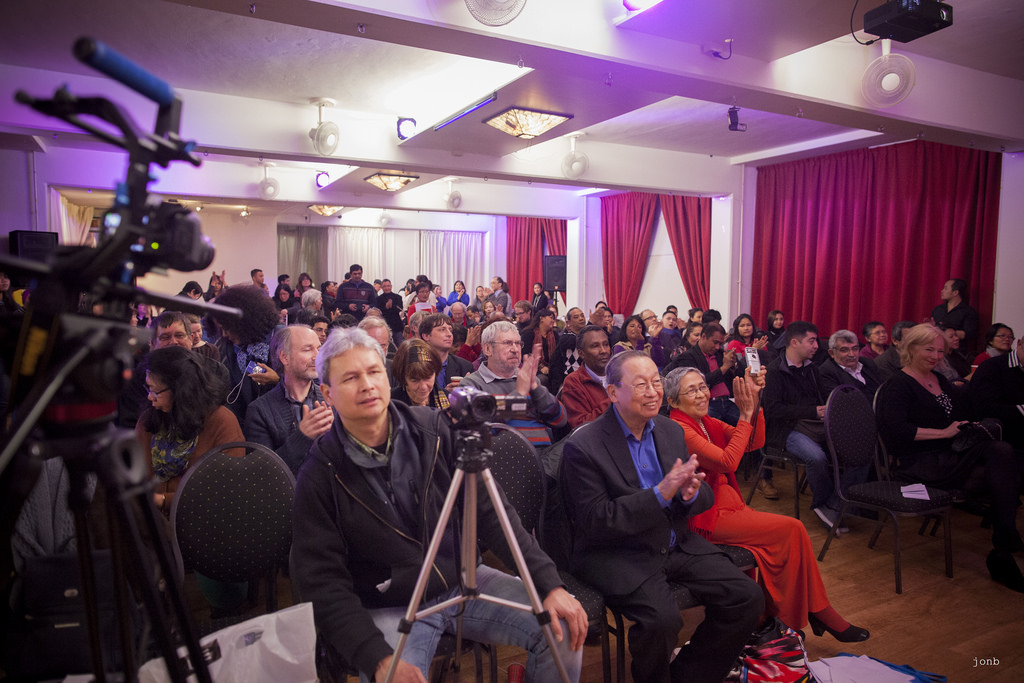 The Party issued “Specific Characteristics of Our People’s War in the Philippines” on the basis of the rich experience already accumulated by the New People’s Army from 1969 to 1975. This historic document creatively applies Chairman Mao Zedong’s principles, strategy and tactics of people’s war to concrete Philippine conditions by taking into account the relatively wide countryside and the archipelagic and mountainous character of the country as well as the domestic and international situation. The comprehensive and profound formulation of the strategy and tactics has guided the New People’s Army and the revolutionary movement in growing in number and all-round strength and frustrating the enemy campaigns to destroy the armed revolution.
The Party issued “Specific Characteristics of Our People’s War in the Philippines” on the basis of the rich experience already accumulated by the New People’s Army from 1969 to 1975. This historic document creatively applies Chairman Mao Zedong’s principles, strategy and tactics of people’s war to concrete Philippine conditions by taking into account the relatively wide countryside and the archipelagic and mountainous character of the country as well as the domestic and international situation. The comprehensive and profound formulation of the strategy and tactics has guided the New People’s Army and the revolutionary movement in growing in number and all-round strength and frustrating the enemy campaigns to destroy the armed revolution.
The Party issued “Our Urgent Tasks” to sharpen the general political line as one of combating fascism, feudalism and imperialism and called on the revolutionary forces to carry out the urgent tasks and the proper methods and steps in building the local organs of political power and the mass organizations of various types and waging the mass campaigns for land reform and other social purposes Since then, the mass base of the armed revolution has been growing wave upon wave. The requisite of mass work has ensured the mass base for carrying out a protracted people’s war.
The “10-Point Program of the National Democratic Front of the Philippines (NDFP)” was first outlined in 1973. It was eventually elaborated upon in 1977, spelling out in major detail the method for overthrowing the Marcos autocracy. It shows how the national and democratic rights and interests of the toiling masses of workers and peasants and the urban petty bourgeoisie can be realized and harmonized and how the united front of the basic revolutionary forces must be built. The NDFP has been consolidated thereby as a united front of the basic revolutionary forces serving as a reliable base for engaging in broader alliances in order to isolate and destroy the enemy at every given time.
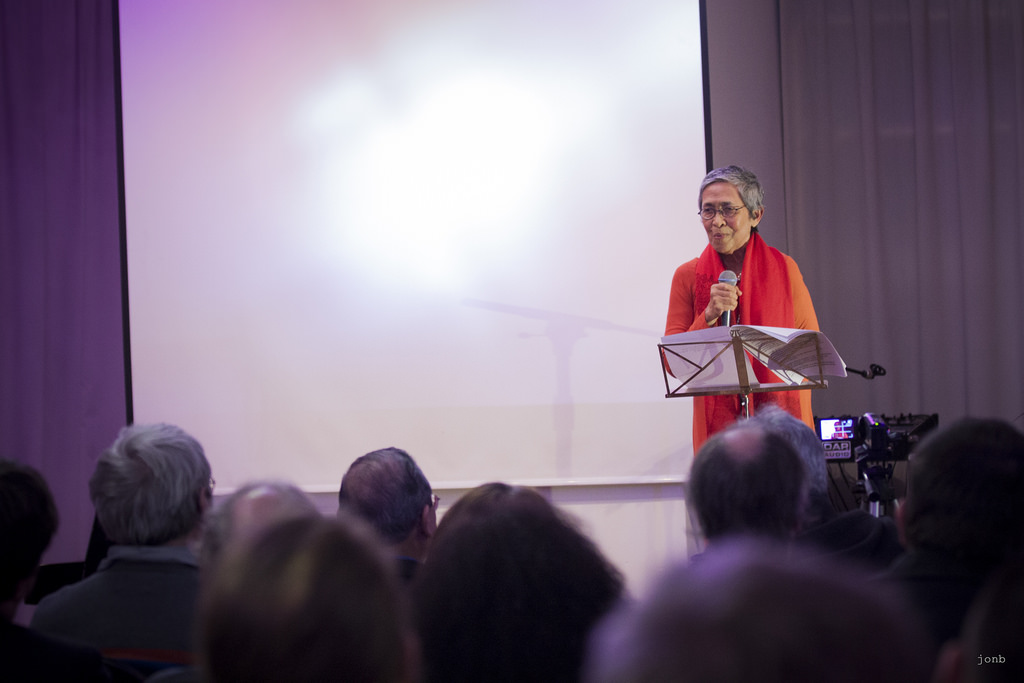 The decisions taken by the CPP Central Committee were resolutely and militantly implemented by the Party rank and file, the New People’s Army and the masses. The ground for fighting and defeating the Marcos fascist dictatorship was well laid on a national scale from 1972 to 1977. Thus, even after I was captured by the enemy on November 10, 1977, I continued to be confident that the Filipino people and their revolutionary cause would prevail over the enemy.
The decisions taken by the CPP Central Committee were resolutely and militantly implemented by the Party rank and file, the New People’s Army and the masses. The ground for fighting and defeating the Marcos fascist dictatorship was well laid on a national scale from 1972 to 1977. Thus, even after I was captured by the enemy on November 10, 1977, I continued to be confident that the Filipino people and their revolutionary cause would prevail over the enemy.
It is necessary to read and study all the contents of Building Strength through Struggle in order to understand why and how the people’s democratic revolution had led to the overthrow of the Marcos fascist dictatorship, how it has continued to fight and win victories against the pseudo-democratic regimes, how it has frustrated subjectivist and opportunist trends and how it has excelled as a torch bearer of armed revolution led by the proletariat amidst the dominance of neocolonialism in the underdeveloped countries, the full restoration of capitalism in former revisionist-ruled countries and the neoliberal plunder and aggression of the imperialist powers worldwide.
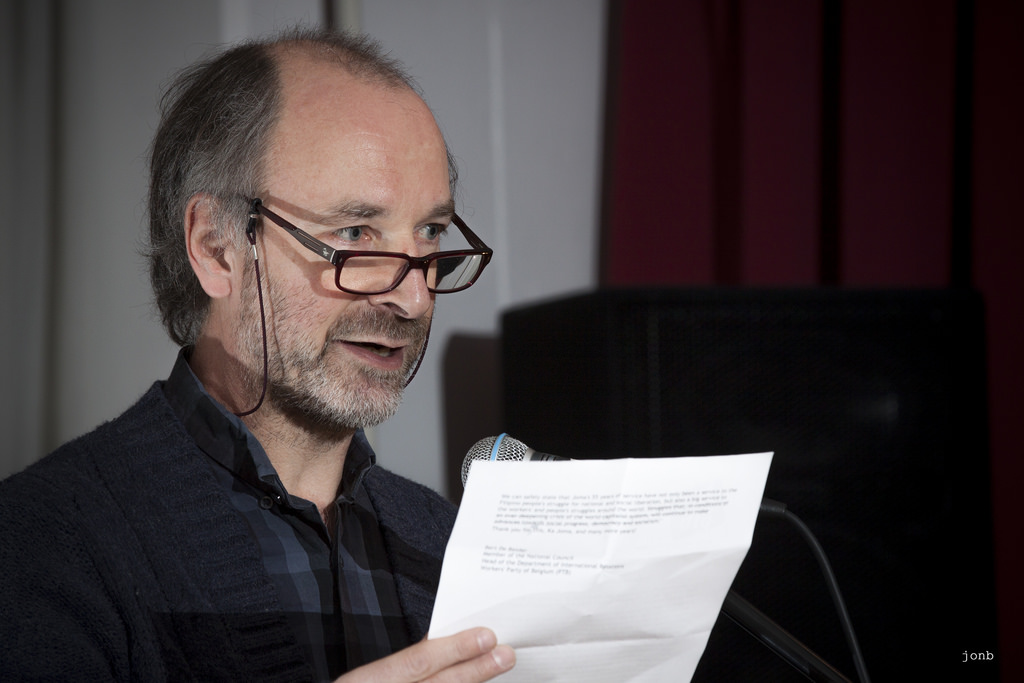 The CPP, NPA , NDFP and the people’s democratic revolution in the Philippines enjoy the respect, appreciation and support of the world anti-imperialist movement and the international communist movement. This book Building Strength through Struggle illumines the path to understanding the fact. Thank you. ###
The CPP, NPA , NDFP and the people’s democratic revolution in the Philippines enjoy the respect, appreciation and support of the world anti-imperialist movement and the international communist movement. This book Building Strength through Struggle illumines the path to understanding the fact. Thank you. ###

